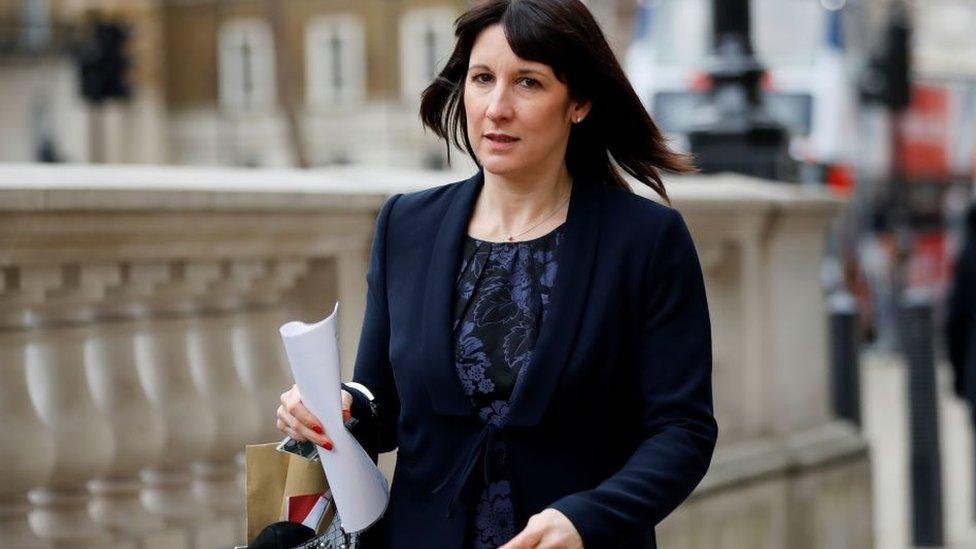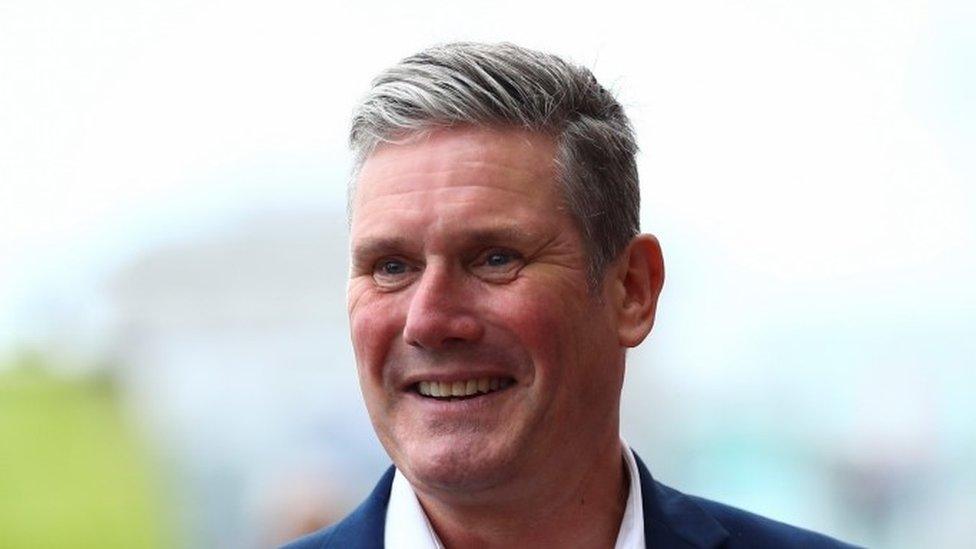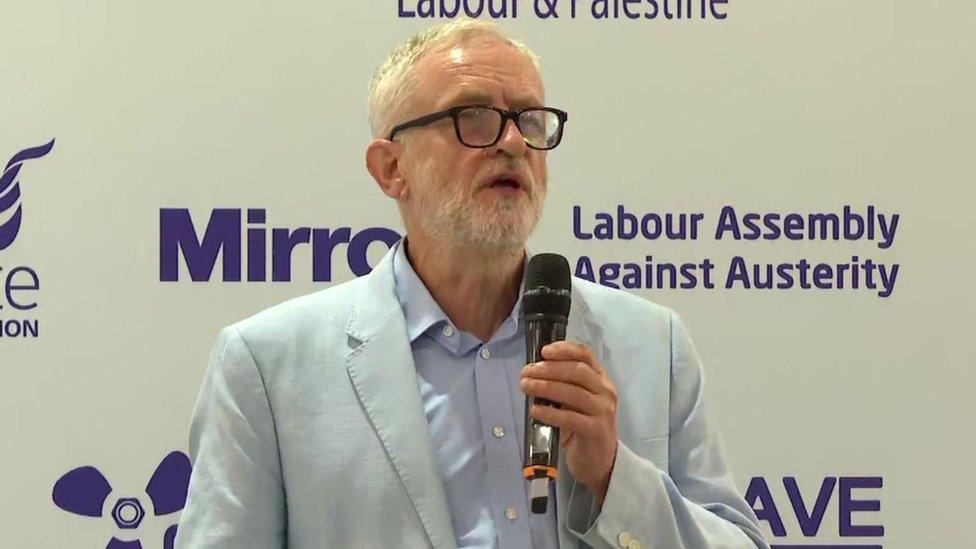Labour conference: Any tax rises under Labour will be fair - Starmer
- Published
Labour leader Sir Keir Starmer: "We will not unfairly hit working families"
Sir Keir Starmer has not ruled out tax rises if Labour wins power, but he promised they would "not unfairly hit working families".
The party leader told the BBC's Andrew Marr: "We want those with the broadest shoulders to pay."
But he said it was too far from an election to make firm tax commitments.
Shadow chancellor Rachel Reeves said she did not have "any plans to increase the rates of income tax" if Labour wins the next election.
Asked about her comments by Andrew Marr, Sir Keir said: "We are looking at tax, nothing is off the table, but we don't know what state of finances will be as we go into the election and nor does anybody else."
He accused Prime Minister Boris Johnson of "whacking working people" with a tax hike, with his plan to increase National Insurance to pay for the NHS and social care.
In his Marr interview, the Labour leader revealed he would not nationalise the big six energy companies if he were to become prime minister - despite a pledge to support "common ownership" of the sector in his party leadership campaign last year.

Rachel Reeves will give her first speech to conference as shadow chancellor on Monday
He said he would be "pragmatic" and not "ideological" when it came to nationalisation, saying: "Where common ownership is value for money for the tax payer and delivers better services then there should be common ownership."
But the former leader of the Unite union, Len McCluskey, called on Sir Keir to stick to his pledge and show more "radicalism", claiming the result would be "the opinion polls [starting] to move upwards."
The Labour conference, in Brighton, backed a motion, put forward by Unite and the CWU union, calling for the nationalisation of energy companies.
The Labour leader also promised children in England an "education fit for the future", paid for by a tax on private schools, if he wins power, in an interview with The Sunday Mirror, external.
What are Labour's tax principles?
Ms Reeves will unveil more details in her conference speech on Monday, but a number of Labour's tax and spending policies have already been confirmed:
A new "Office of Value for Money" to scrutinise government spending and ensure tax is used wisely
Covering all day-to-day spending by balancing the current budget - but also borrowing to invest
Introducing a target to reduce the national debt

Who are the people with "the broadest shoulders" who will pay more tax under a Labour government?
The party has given two specific examples recently. Removing the charitable status of private schools would make them pay an estimated £1.5bn a year in tax.
Making private equity fund managers pay full income tax on a type of earning called "carried interest" would raise about £440m.
In an interview with the Sunday Times, external, Rachel Reeves suggested a few more: income from stocks and shares and buy-to-let properties.
What the general public would really notice, though, are changes to the rates of the big things we all pay: income tax and national insurance.
And Starmer and Reeves have kept their options open on a potential rise in the former or whether they'd scrap the government's increase of the second.
But the "broadest shoulders" rhetoric suggests any increase would be targeted at the wealthy.
Which means we really need to know how Labour would apply their tape measure to the nation's shoulders to separate the broad from the narrow.

Elsewhere at the conference, shadow business secretary Ed Miliband set out plans to "green" the UK steel industry by investing £3bn over 10 years in decarbonisation.
The former Labour leader also accused the Conservatives failing to protect steelmakers from being undercut by cheap steel imports, as well as spending tens of millions on imported steel to build schools and hospitals.
Mr Miliband also describe the current gas prices crisis as a "disaster made in Downing Street" because of "inaction" from the government, adding: "As we respond to the climate crisis with all the transformation that entails, we have a fateful choice to make.
"We can try and put a green coat of paint on an unfair, unequal, unjust Britain, or we can make a different choice."
- Published25 September 2021

- Published25 September 2021
